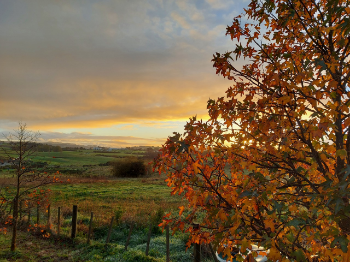
MANGAWHAI'S NO.1 NEWSPAPER
|
|
|
Daylight saving has its pros and consJULIA WADE 11 April, 2020
Manipulation of time to gain an hour more light in summertime, aka Daylight Saving Time (DST), has been part of New Zealand’s culture since 1927 – 19 years after Ontario, Canada, formerly adopted the idea in 1908 – and has been a concept even ancient cultures used to trial. Although Benjamin Franklin suggested a similar idea in a satircal French paper in 1784 – to inspire residents to save on candle wax and making the most of the morning sun as did Englishman William Willett in 1905 – modern DST was actually first proposed in 1895 by an English-born New Zealander, entomologist George Hudson, who reportedly wanted longer hours to hunt bugs. Supporters say the pros of DST not only saves energy and promotes physical and psychological health by allowing more time for outdoor summer evening activity, the lingering daylight even reduces traffic accidents and crime. Studies on the cons of DST include bodyclock disruption, higher rates of stroke and heart attacks, an increase in traffic accidents due to tired drivers, and allegedly the airline industry stated in 2007 they lost millions due to confused time schedules with non-DST countries. Although the agricutural sector have commonly been thought of as supporters of DST, this is a misconception as farmers are generally against the shifting of time due to the disruption of farming schedules: ‘Imagine telling a dairy cow used to being milked at 5am that their milking time needs to move back an hour before the milk truck is coming to do a pickup’. Not all countries around the world observe DST, mainly industrialised nations whose daily lives follow a time schedule shuffle the clock hands back and forward twice a year, unlike agrarian societies, whose lives revolve more around the natural rhythm of daylight and solar time. Countries around the equator and in the upper northern hemisphere, such as Iceland and Scandinavia, also have no need for the adjustment due to their daylight only having a small variation throughout the year. Since New Zealand first observed DST, the dates and time difference has changed over the years, the hands of the DST clock coming to a complete halt in 1946 before resetting again in 1974 and, following public debate and a petition presented to parliament, DST dates were extended from the last Sunday in September to the first Sunday in April to allow New Zealanders to enjoy longer hours of the kiwi summer. * Ref Wikipedia, NZ Govt Recreation & Environment, Britannica ProCon.org.
Daylight saving allows Kiwis to enjoy longer evenings over summer. PHOTO/JULIA WADE |

 Autumn has begun its seasonal charm over New Zealand, dialing down the heat and slowly unfolding the characteristic and breathtaking nature show of falling golden leaves. Time has also altered of course, with the recent jump back of the clock allowing for a rising sun to greet many in the early morning and bring darkness quicker in the eve.
Autumn has begun its seasonal charm over New Zealand, dialing down the heat and slowly unfolding the characteristic and breathtaking nature show of falling golden leaves. Time has also altered of course, with the recent jump back of the clock allowing for a rising sun to greet many in the early morning and bring darkness quicker in the eve.
